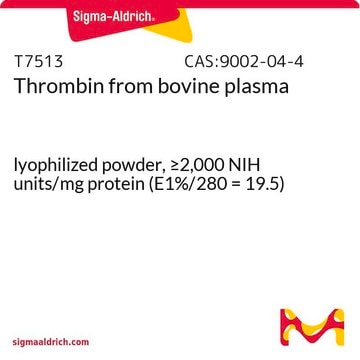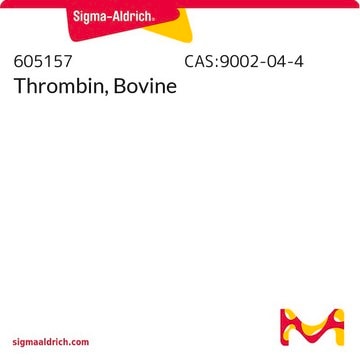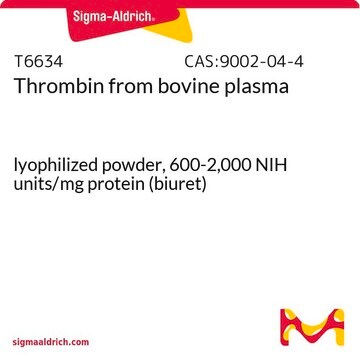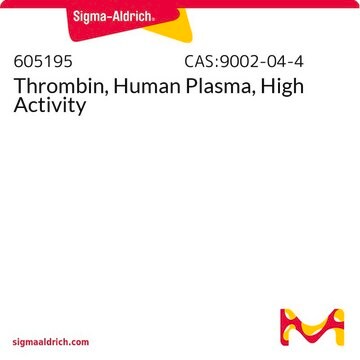SRP6556
Thrombin Active (High Activity) from bovine plasma
≥98% (SDS-PAGE), recombinant, lyophilized
Synonym(s):
Activated Factor IIa
About This Item
Recommended Products
product name
Thrombin Active (High Activity) from bovine plasma, ≥98% (SDS-PAGE)
biological source
bovine plasma
Assay
≥98% (SDS-PAGE)
form
lyophilized
potency
>1500 units/mg
mol wt
37 kDa
packaging
pkg of 10,000 units
pkg of 100,000 units
pkg of 1000 units
UniProt accession no.
shipped in
wet ice
storage temp.
−20°C
Gene Information
bovine ... F2(280685)
General description
Biochem/physiol Actions
Physical form
Reconstitution
Storage Class Code
11 - Combustible Solids
WGK
WGK 3
Flash Point(F)
Not applicable
Flash Point(C)
Not applicable
Certificates of Analysis (COA)
Search for Certificates of Analysis (COA) by entering the products Lot/Batch Number. Lot and Batch Numbers can be found on a product’s label following the words ‘Lot’ or ‘Batch’.
Already Own This Product?
Find documentation for the products that you have recently purchased in the Document Library.
Customers Also Viewed
Our team of scientists has experience in all areas of research including Life Science, Material Science, Chemical Synthesis, Chromatography, Analytical and many others.
Contact Technical Service










